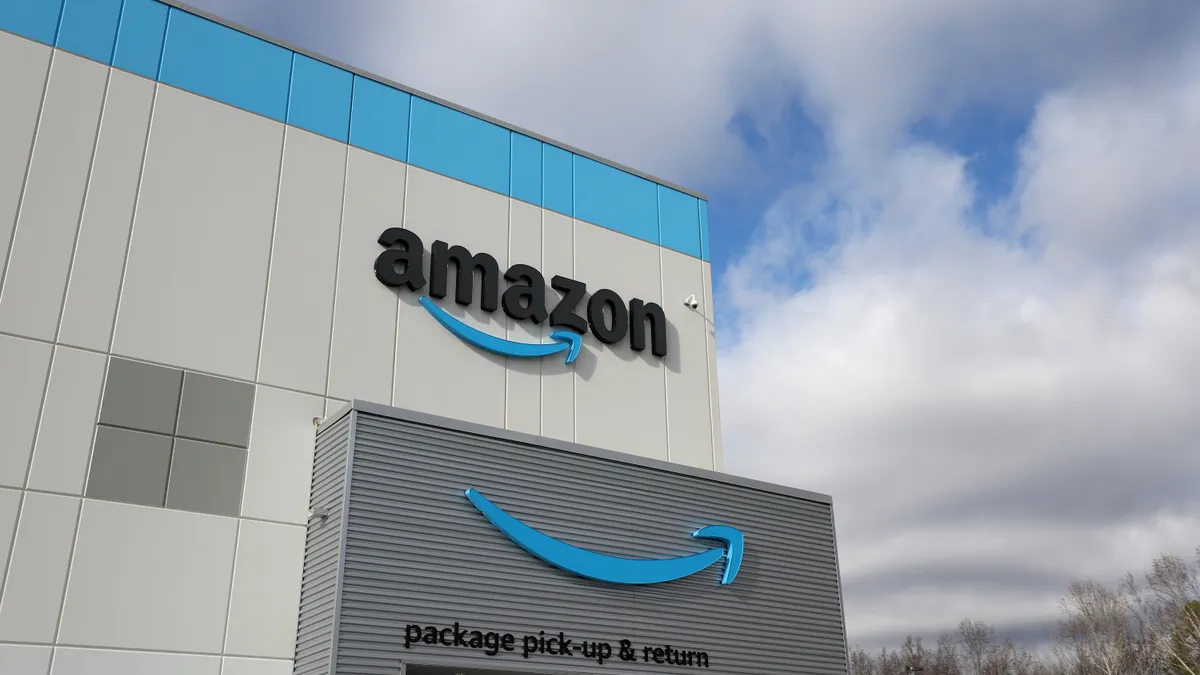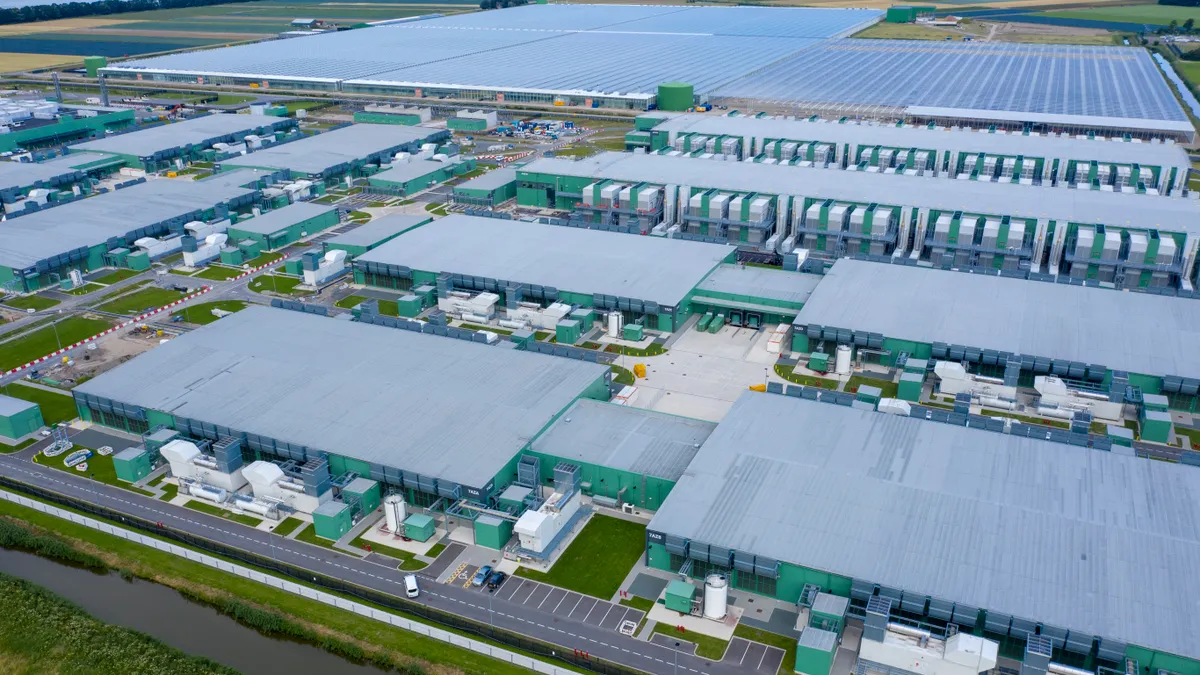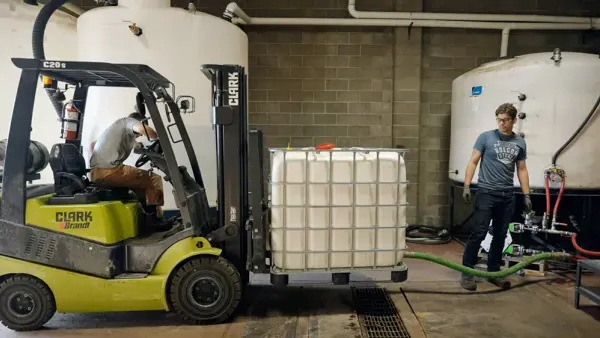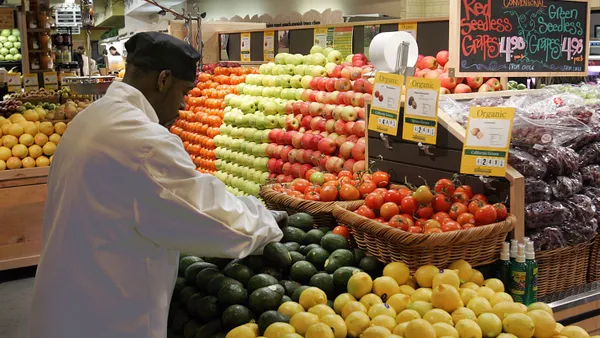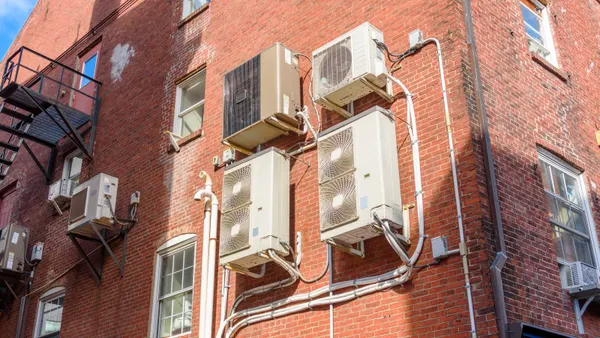Dive Brief:
- Amazon announced a trio of new investments through its climate fund this week, with funding for circular manufacturing company Molg, construction 3D printing company 14Trees and Paebbl, a startup looking to store carbon dioxide in building materials.
- The tech giant’s investments bolstered a $5.5 million seed funding round for Molg; an exclusive series A funding round for 14Trees, alongside sustainable construction company Holcim; and a reported $25 million funding round for Paebbl.
- Including the investments announced Oct. 9, Amazon’s Climate Pledge Fund has now invested in 31 companies since launching in 2020 with $2 billion from the company. Amazon also announced it has begun implementing technology from five of the companies the CPF has invested in.
Dive Insight:
Amazon’s Climate Pledge Fund is an investment vehicle designed to accelerate the tech giant’s trajectory towards reaching its announced climate goals, which include reaching net-zero by 2040. The startup investments Amazon announced Wednesday are expected to advance solutions in e-waste, carbon storage and low-carbon construction.
Amazon said in the announcement it invested in the trio of startups because they are “bringing innovative technology and fresh thinking to diverse aspects of the climate change crisis.”
Closed Loop Partners Ventures Group led the funding round for Molg, a startup that uses advanced robotics microfactories to autonomously disassemble electronics and components that are able to be reused, remanufactured or recycled.
Molg CEO Rob Lawson-Shanks said in a release that the company was borne from experience in the consumer electronics sector and seeing “how current design, production and recovery processes—or the absence thereof—contribute to the massive problem of e-waste.”
"Achieving true circularity requires a fundamental shift in the underlying systems that support demanufacturing. It starts with better design and is enabled by dynamic automation. This funding allows us to accelerate our work at both ends of a product's life, designing for circularity from the start and recovering valuable devices, components and materials through automated disassembly."
Sam LaPierre, an investor for Amazon’s Climate Pledge Fund, said in a release that the Molg investment is part of Amazon’s efforts to “improve the circularity of its supply chains.” Molg said it will use the funding to expand production capacity, and ABB Robotics & Automation Ventures, Overture, Elemental Impact and Techstars also joined the funding round.
“Efforts to improve hardware demanufacturing and material recovery, such as those developed by Molg, are promising technologies that can help advance the recycling and material recovery industries at scale,” LaPierre said.
Holcim and Amazon’s investments in the Africa-based 14Trees will allow the startup to roll out its 3D printing construction processes globally. To date, the company has delivered the first 3D-printed house in Africa, the world's first 3D-printed schools and “one of the largest 3D-printed neighborhoods on the planet, according to 14Trees.
“This marks a key milestone, conviction of 14 Trees' concept for delivering 3D-printed homes, schools, and commercial real estate,” 14Trees Managing Director Fancoise Perrot said in the company’s release. “We aim to work with leaders in innovation, technology, and sustainability … to deliver low-carbon and high-performance buildings with our 3D printing technology."
Phoebe Wang, an investment partner for Amazon’s Climate Pledge Fund, said in the release that the company is looking to help the company scale and said it will collaborate with 14Trees on efforts to expand sustainable materials and low-carbon construction methods.
Amazon’s investment in Paebbl was a part of a $25 million funding round for the startup that is looking to lock away carbon dioxide in building materials, according to a Bloomberg report. The company currently has a pilot facility in Rotterdam, Netherlands, and plans to use the funding to create a demo plant in 2025 and expand its offices in Sweden and Finland, the company told Bloomberg.
Amazon said Paebbl’s technology has the potential to transform the “built environment into a permanent carbon sink.” Amazon Web Services will trial the startup’s cement-like low-carbon materials in one of the tech giant’s European data centers to provide data on the material, it said this week.
Additionally, Amazon announced this week it has incorporated technology from prior CPF investments into its processes. Those include heavy-duty electric truck charging infrastructure from Forum Mobility; recycling sorting technology from artificial intelligence and robotics company Glacier; and more than 15,000 Rivian electric vehicles as part of its delivery fleet.


